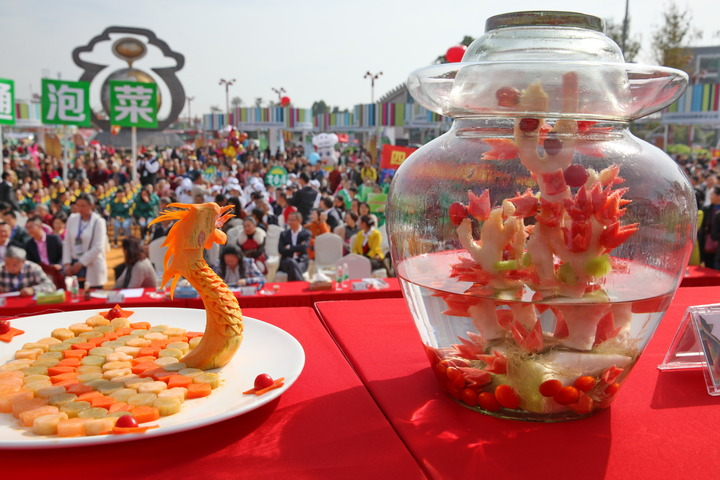CHONGQING, May 10 (Xinhua) -- The Regional Comprehensive Economic Partnership (RCEP) agreement has facilitated the export of a famous variety of Chinese pickles since it took effect on Jan. 1, the customs authorities of Chongqing Municipality said.
In the first quarter of 2022, the customs of Chongqing's Fuling District cleared the exports of 18.82 million yuan (about 2.8 million U.S. dollars) worth of the region's unique pickled mustard tubers to other RCEP member states, with the majority of the products going to Japan and the Republic of Korea, customs data showed.
The history of pickle-making in Fuling, a major pickle production base, dates back more than 150 years. The district's traditional method of producing preserved mustard tubers was listed as a state-level intangible cultural heritage in 2008.
"This year, we have exported around 100 containers of pickled mustard tubers, with each weighing 16 to 20 tonnes," said Sun Xiao, foreign trade manager of Chongqing Fuling Luling Industrial Co., Ltd.
"The pickles were only favored by overseas Chinese in the past. Thanks to deepening exchanges, more foreigners are now falling in love with them. With the implementation of the RCEP and ensuing tariff reductions and trade facilitation, our pickles have seen stronger competitiveness in overseas markets," Sun added.
The RCEP can enhance the price advantage of Chinese pickled mustard tubers in target markets, reduce the operating costs of enterprises and improve customs clearance efficiency by simplifying administrative procedures, thus giving a boost to pickle exports, said Deng Jikuan, an official with Chongqing Customs.
The landmark RCEP is the world's largest free trade deal to date. The RCEP countries account for roughly 30 percent of the world's gross domestic product and population. Over 90 percent of trade in goods among approved member states will gradually be tariff-free.




 A single purchase
A single purchase









